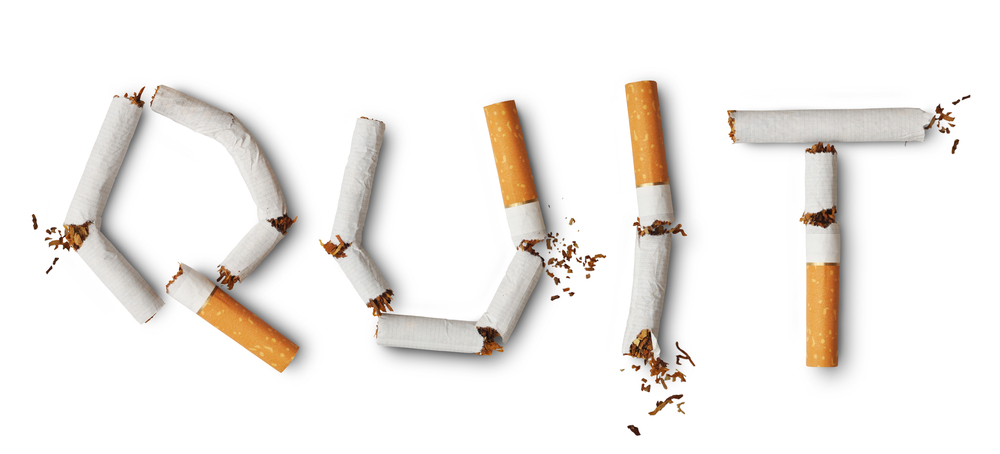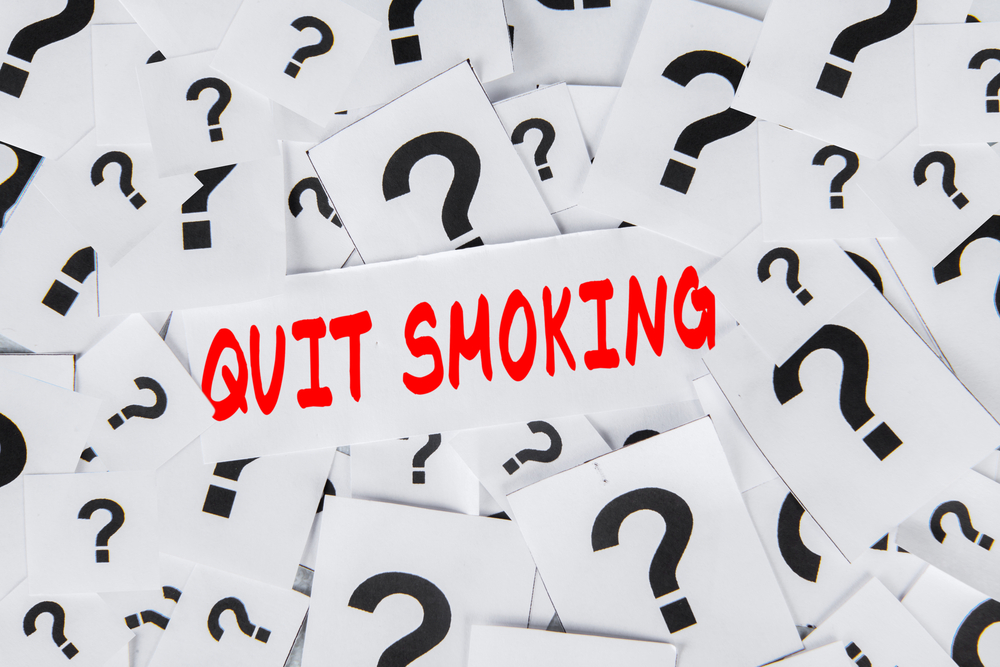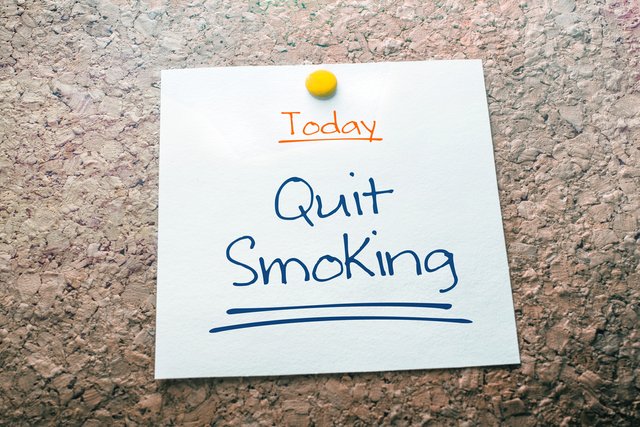Quitting smoking results in a lot of health gain. This
gives you more air, more stamina, better blood circulation and less
chance of diseases like lung cancer and cardiovascular disease. Also for
your environment, smoking is a good choice. The smoke does not only
harm you, but also the people around you. In the following cases, it is important to quit smoking. Tell your
doctor and pharmacist that you want to quit smoking. They can give you
advice and possibly adjust your medication. Smoking aggravates these conditions. Stopping smoking can reduce the
severity of your complaints. Are you a heavy smoker and do you use high
doses of theophylline because of anxiety disorder? Then it is very
important to inform your doctor and pharmacist if you stop smoking.
Smoking speeds up theophylline degradation. If you stop smoking, the
amount of this medicine may increase in your blood, which increases the
effect or you get more side effects. Stopping smoking can have a beneficial effect on the severity of
diabetes mellitus. This gives you less chance of complications such as
visual impairment and kidney function. Do you have type 1 diabetes and
are you using insulin? Then discuss your plans to stop smoking with your
doctor and pharmacist. Smokers need more insulin than non-smokers. Quitting smoking reduces the severity of these conditions. Do you use
beta blockers or flecainide and do you want to quit smoking? Then talk
to your doctor and pharmacist. If you smoke, these means have less
effect. Therefore, the dose may decrease if you quit smoking. Take note of nicotine replacement therapy if you have recently had a
heart attack or stroke . These resources are not safe to use on your
own. The same applies to angina pectoris or severe cardiac arrhythmias .
In these cases, ask your GP for guidance on smoking cessation. Smoking during pregnancy has adverse effects on your baby. This will
increase your chances of your baby born prematurely, having too low
birth weight or dying just before or after birth. Also, the risk of
cervical death increases in children of smoking mothers. Also ask your
partner to quit smoking. Meeroken is bad for you and for your baby. Even after pregnancy and childbirth it is important that you and your
partner do not smoke. Inhalation of smoke is even more harmful to
children than for adults. Young children of smoking parents often have
middle ear infections and problems with their respiratory tract. Smoking increases the risk of heart attack , stroke and thrombosis .
If you also use 'the pill', this chance will be even bigger. Other
hormonal contraceptives, such as the contraceptive or patch and the
hormone secreting syringe or rod by women over the age of 35, are also
likely to increase this risk. So you can stop smoking better if you fall
into this group. If this fails, it is better to switch to non-hormonal
contraceptives, such as condoms or the copper syringe. There are several ways to quit smoking. Medications like nicotine
patches can help. Often, stopping is easier if you are accompanied by
the GP or GGD. Quitting smoking can be difficult because you are addicted. It is
good to know that addiction has two sides: a physical and a mental side. Medications can help you relieve the withdrawal symptoms. There are
two options: nicotine replacement and prescription drugs. Read more
under the heading 'Medicine on smoking quit'. Guidance in the form of a stop-smoking program can provide a lot of support. There are various forms of guidance. You can always ask your pharmacist with questions or advice. He can answer questions like: Medications can help suppress withdrawal symptoms or remove the
sentence in a cigarette. Usually, medicines are combined with a guidance
program. There are two types of medicines that can help quit smoking:
nicotine replacement and prescription drugs. Nicotine substitutes suppress withdrawal symptoms such as mood,
impatience, irritability, restlessness, insomnia, fear, poor
concentration, cold chills, hand and foot tingling, slower heartbeat,
increased appetite and weight gain. You can buy nicotine replacements at
the pharmacy or the drugstore. A recipe is not required. Prescription drugs can help you quit smoking by removing the pull in a
cigarette and reducing the good feeling during smoking. Prescription
drugs are prescribed by a GP or specialist and are often used in
conjunction with a counseling course. These drugs are not always safe to
combine with the medicines you already use. Consult with your
pharmacist. There are three types: bupropion (Zyban), nortriptyline (Nortrilen) and varenicline (Champix). This is definitely a good idea. Your pharmacist can give you expert
advice on smoking and can guide you if you are taking medication.
Smoking or smoking can affect the effect of medicines. Examples of these
are medicines for diabetes, asthma or COPD or cardiac arrhythmias. It
may be necessary to adjust the dose after smoking. Yes, nicotine substitutes are really medicines. Like any drug, a
nicotine replacement may also have side effects. Therefore, always read
the package leaflet before use. In your pharmacy, they can tell you
whether a nicotine replacement may be used in addition to other
medicines or in certain conditions. If you want to quit smoking, ask for
advice in your pharmacy. In case of smoking, a nicotine addiction must be overcome. In
addiction, two types of dependence play a role: physical and mental
dependence. Physical dependence disappears a few weeks after quitting
smoking. Spiritual dependence can still play a part after the
disappearance of the nicotine addiction. The need to smoke in certain
situations persists, for example at coffee or in company. Many people
find it hard to learn this habit. Nicotine substitutes are only useful
when quitting smoking when used long enough and when use is slow down.
If you want to quit smoking, ask for advice in your pharmacy. Bupropion and nortriptyline are in addition to drugs that help stop
smoking, including antidepressants. Using two antidepressants side by
side is unnecessary. Additionally, bupropion / nortriptyline and other
antidepressants add each other's side effects, such as reduced reaction
capacity. It is therefore not wise to use these two resources together.
Talk to your doctor or pharmacist. Perhaps you can quit smoking using
another method.
You have asthma or COPD
You have diabetes mellitus (diabetes)
You have heart or vascular disease, high blood pressure or high cholesterol
You are pregnant or want to become pregnant
You have a young child
You are a woman, over 35 years of age, and used hormonal contraception
How to quit smoking?
Addiction
Medicines
Coaching
A coach calls you at agreed times to advise and support you.
You have at least four meetings with a coach. This may be your GP, but
also a pharmacist, a practitioner, a nurse or a psychologist.
A training of several weeks in which you will stop with a number of
other people with the help of an expert. The advantage is that the
participants can support each other.
Ask your pharmacist
Make an appointment at your pharmacy or just walk in.
Drugs when quitting smoking

Nicotine substitutes
Good to know about nicotine substitutes:
Prescription drugs
Good to know about bupropion (Zyban)
Good to know about nortriptyline (Nortrilen)
Good to know about varenicline (Champix)
Frequently asked questions about smoking
I'm going to quit smoking. Is it a good idea to bring this into the pharmacy?
Are nicotine substitutes really medicines?

Why does smoking quit often fail when someone uses nicotine substitutes?
I am using a remedy for depression and I would like to quit smoking. Can I use bupropion or nortriptyline?

0